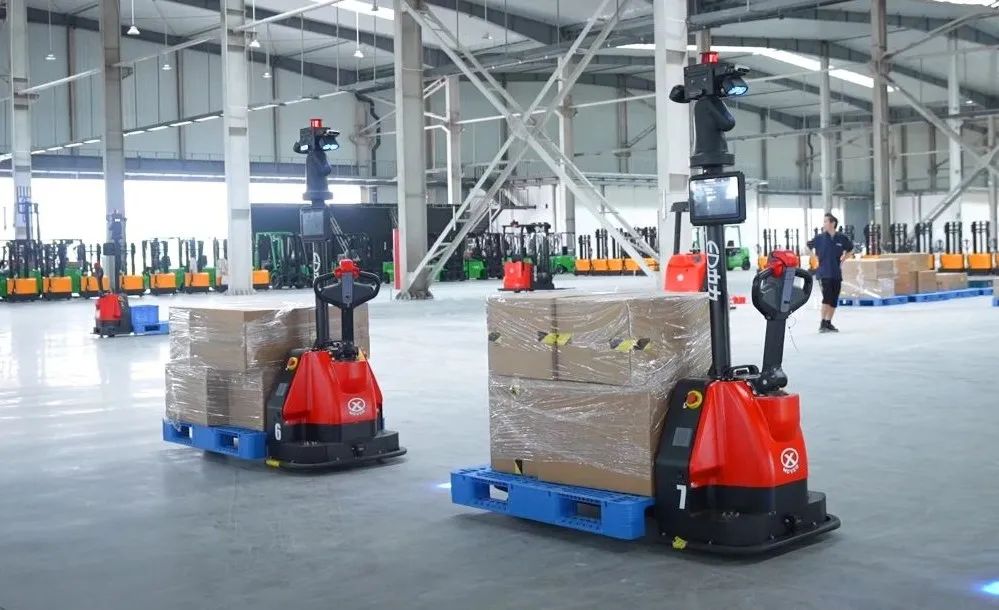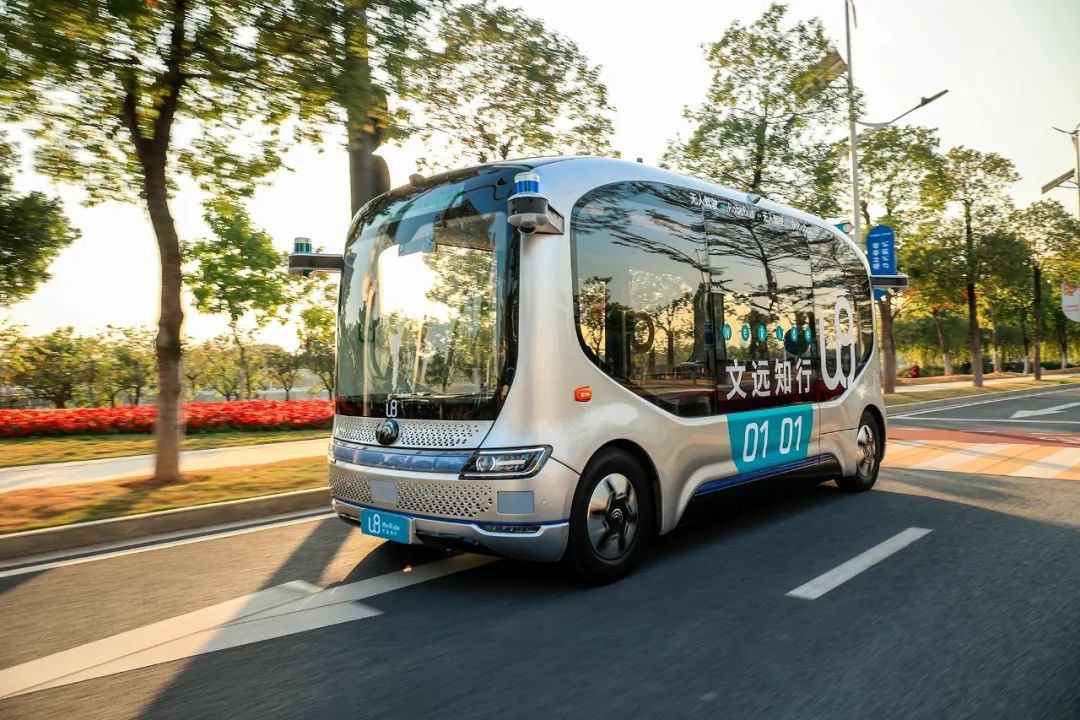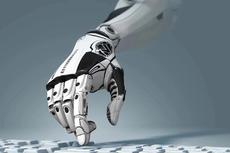科技工作者之家
科技工作者之家APP是专注科技人才,知识分享与人才交流的服务平台。
科技工作者之家 2021-08-23
镁伽Megafluent 自动化系统进行实验室自动化
除了创业公司,我们看到几家成熟的领军企业也开始积极拥抱AI。创新工场参与了有28年历史的中力电动叉车,这家头部的锂电叉车制造商已经推出了能够在工厂、仓库自主运行的无人叉车,并且无需对运行环境进行改造,能快速实现从手动到电动到自动驾驶的搬运赋能创新。此外,拥有50多年历史的领先客车制造商-宇通集团,与自动驾驶独角兽企业-文远知行战略合作,已在三个城市的马路上运行全无人驾驶小巴。

2021年,中力搬马机器人XP1在DC进行点到点货物搬运

2021年,文远知行WeRide无人驾驶小巴在广州开展测试
接着会发生什么?我大胆预见,在更长远的未来,机器人和AI将接管大多数产品的制造、设计、交付甚至营销——很可能将生产成本降低到和原物料成本相差无几。未来的机器人有能力自我复制和自我修复,甚至做到部分自我迭代设计。房屋和公寓将交由AI主导设计,使用预制建筑模块,交由机器人像搭积木似地筑楼盖房。无人公交、无人摩托等随传随到的自动化未来交通系统,能将我们安全无虞地送达想去的地方。
这些愿景成为现实或许还需要多年,但此时的中国正在积极铺垫引领新一代自动化革命的基石。可期的是,中国工厂的实力将不仅仅体现在产能上,而将逐步彰显在智能上。
本文经《TIME时代》授权进行中文编译,原文如下:
China Is Still the World's Factory — And It's Designing the Future With AI
BY KAI-FU LEE
For many years now, China has been the world’s factory. Even in 2020, as other economies struggled with the effects of the pandemic, China’s manufacturing output was $3.854 trillion, up from the previous year, accounting for nearly a third of the global market.
But if you are still thinking of China’s factories as sweatshops, it’s probably time to change your perception. The Chinese economic recovery from its short-lived pandemic blip has been boosted by its world-beating adoption of artificial intelligence (AI). After overtaking the U.S. in 2014, China now has a significant lead over the rest of the world in AI patent applications. In academia, China recently surpassed the U.S. in the number of both AI research publications and journal citations. Commercial applications are flourishing: a new wave of automation and AI infusion is crashing across a swath of sectors, combining software, hardware and robotics.
As a society, we have experienced three distinct industrial revolutions: steam power, electricity and information technology. I believe AI is the engine fueling the fourth industrial revolution globally, digitizing and automating everywhere. China is at the forefront in manifesting this unprecedented change.
Chinese traditional industries are confronting rising labor costs thanks to a declining working population and slowing population growth. The answer is AI, which reduces operational costs, enhances efficiency and productivity, and generates revenue growth.
For example, Guangzhou-based agricultural-technology company XAG, a Sinovation Ventures portfolio company, is sending drones, robots and sensors to rice, wheat and cotton fields, automating seeding, pesticide spraying, crop development and weather monitoring. XAG’s R150 autonomous vehicle, which sprays crops, has recently been deployed in the U.K. to be used on apples, strawberries and blackberries.
Some companies are rolling out robots in new and unexpected sectors. MegaRobo, a Beijing-based life-science automation company also backed by Sinovation Ventures, designs AI and robots to safely perform repetitive and precise laboratory work in universities, pharmaceutical companies and more, reducing to zero the infection risk to lab workers.
It’s not just startups; established market leaders are also leaning into AI. EP Equipment, a manufacturer of lithium-powered warehouse forklifts founded in Hangzhou 28 years ago, has with Sinovation Ventures’ backing launched autonomous models that are able to maneuver themselves in factories and on warehouse floors. Additionally Yutong Group, a leading bus manufacturer with over 50 years’ history, already has a driverless Mini Robobus on the streets of three cities in partnership with autonomous vehicle unicorn WeRide.
Where is all this headed? I can foresee a time when robots and AI will take over the manufacturing, design, delivery and even marketing of most goods—potentially reducing costs to a small increment over the cost of materials. Robots will become self-replicating, self-repairing and even partially self-designing. Houses and apartment buildings will be designed by AI and use prefabricated modules that robots put together like toy blocks. And just-in-time autonomous public transportation, from robo-buses to robo-scooters, will take us anywhere we want to go.
It will be years before these visions of the future enter the mainstream. But China is laying the groundwork right now, setting itself up to be a leader not only in how much it manufactures, but also in how intelligently it does it.
来源:GlobalThinkTank 中国与全球化智库
原文链接:http://mp.weixin.qq.com/s?__biz=MzA3NjI0MjcyNQ==&mid=2652698279&idx=6&sn=eb2dfafda2496540ae57e24d70d20d2d
版权声明:除非特别注明,本站所载内容来源于互联网、微信公众号等公开渠道,不代表本站观点,仅供参考、交流、公益传播之目的。转载的稿件版权归原作者或机构所有,如有侵权,请联系删除。
电话:(010)86409582
邮箱:kejie@scimall.org.cn

【WRC 大咖观点】龚克《新趋势:AI+机器人》

听机器人教育专委会主任讲机器人

李开复:中国世界工厂 + AI 的未来
“制造业转型升级”论坛在深圳举行
马林看望第十七届青少年机器人竞赛北京队参赛师生




机器人
人型机器人
特斯拉正在开发AI驱动的人形机器人TeslaBot
机器人造机器人,噱头or风向?
第九届湖南省青少年机器人竞赛在株洲举行


